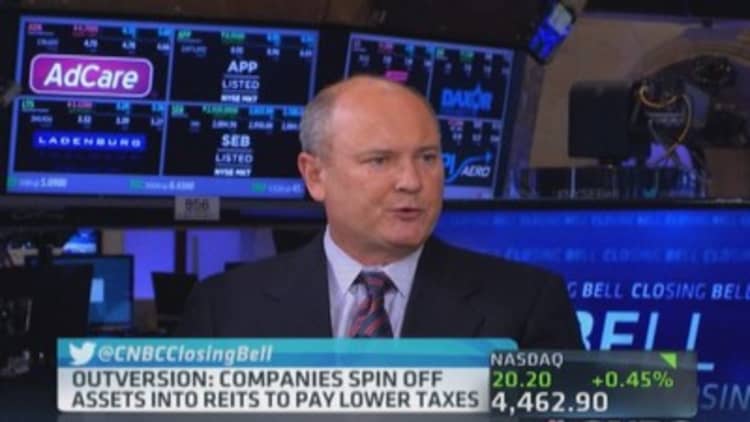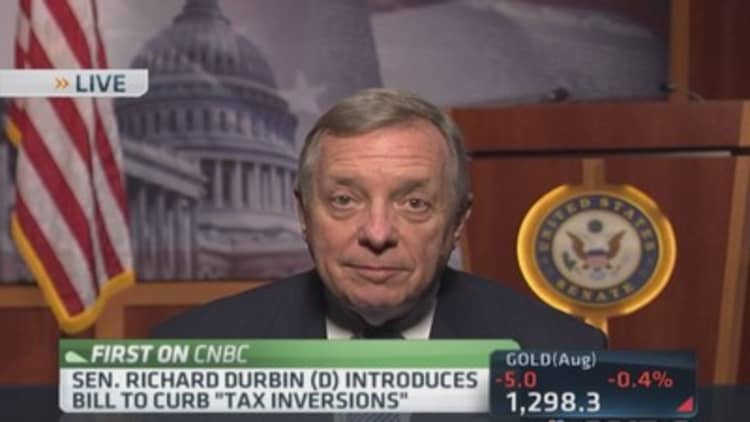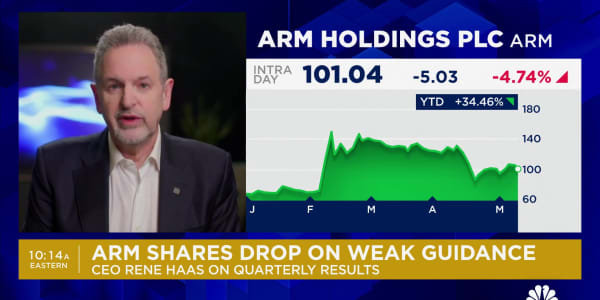
Corporate America may have another tax-avoidance trick up its sleeve.
"Inversions" are already all the rage in boardrooms these days. Companies from Chiquita Brands to giant drugmaker AbbVie to potentially Walgreens are buying offshore companies, shifting their home addresses overseas and thus lowering their overall tax bills to Uncle Sam.
Executives argue they have no choice, given America has one of the highest corporate tax rates in the world (of up to 35 percent), to stay competitive globally. President Barack Obama calls it "wrong" and "unpatriotic," and last week he pushed Congress to halt the practice.
And now, just as the debate over that loophole is reaching a fever pitch, another one is emerging—what some are calling "outversions."
Shares of Windstream Holdings surged more than 12 percent Tuesday when the Little Rock, Arkansas-based telecom company said it was going to spin out some of its fiber and copper cable and other real-estate assets into a real-estate investment trust, or REIT. The move will allow Windstream to cut down its debt load and save millions every year in taxes—and the company said it has the blessing in the form of a 'favorable private letter ruling' from the Internal Revenue Service.
Read More
That news gave the entire industry a jolt: Frontier Communications gained more than 14 percent on the day while CenturyLink was up almost 6 percent.
"We believe this means every network stock we cover is roughly 20 percent undervalued at this point, as they should largely be able to avoid paying taxes going forward," wrote Oppenheimer analyst Timothy Horan, as reported in The Wall Street Journal. Debate as to whether the likes of AT&T, Verizon and cable giants like Comcast (parent of NBC Universal and CNBC) would ever follow suit is already heating up.
And it may not end there. In a sense, the move—and the seal of approval from the IRS—will now get shareholders and executives across other industries thinking about how they might spin off their own real estate assets to lower their tax bill.
There is a herd mentality with these kinds of maneuvers; both the safety the herd offers from any individual company receiving outsize scrutiny in Washington as well as the incentive for rivals to follow suit once a competitor moves to lower its tax bill so as not to lose ground.
Read More

At least one major fund manager on Monday was already drawing up a list of the biggest real-estate owners in corporate America—a list that includes names like Wal-Mart Stores. Walmart has roughly 750 million square feet of U.S. retail space including its Sam's Club stores, an effective tax rate of 32.9 percent as of its fiscal year 2014, and an incredibly intense competitive environment in which its ability to drive the lowest price for consumers reigns supreme.
Recall too legendary McDonald's executive Ray Kroc's line that the chain wasn't in the hamburger business, but the real-estate business.
Outrage from Obama and lawmakers might keep such blue-chip American names from considering such a move for the time being. But the incentive to pursue "inversions," these so-called "outversions," and other such maneuvers in the absence of any real moves towards corporate tax overhaul is getting greater these days as the pushback so far remains largely rhetorical.
Read MoreLew calls on Congress to close inversion loophole
Little attention is being paid to bills like Sen. Richard Durbin's (D-Ill.) "No Federal Contracts for Corporate Deserters Act."
"It's a very big opportunity for corporate America and a very significant one," Nicholas Colas, chief market strategist at ConvergEx, told CNBC on Monday. "It's definitely a way that they're trying to address what are still structurally very high tax rates in this country vis-à-vis a lot of other ones. That's created a lot of imbalances and corporations are simply trying to redress that using these very innovative structures."
—By CNBC's Kelly Evans.






